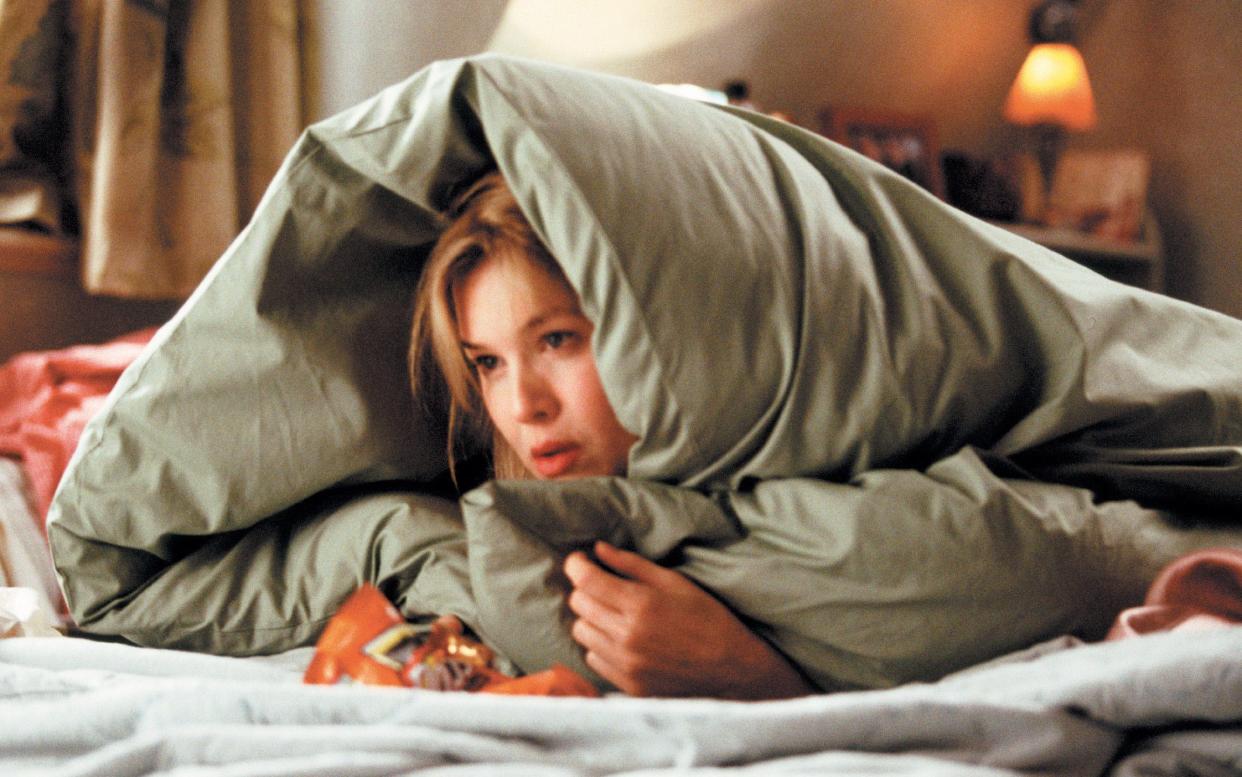The truth about women and emotional eating

It’s the classic image of a lonely woman: Bridget Jones, wrapped in a duvet and clutching a half-eaten tub of Ben & Jerry’s.
And if, like her, you’ve found yourself reaching for junk food when you’re by yourself, you’re far from alone. New research from UCLA in America has found that loneliness is strongly linked to craving – and eating – more rubbish.
The research found that women who perceive themselves to be lonely showed more brain activity in areas associated with food cravings, especially when shown pictures of high-calorie or sugary foods.
The study of 93 women found that the same group of lonely women also reported they had unhealthy eating behaviours and greater uncontrolled eating.
“When we experience social isolation or emotional distress, the brain’s reward system seeks pleasure and comfort,” says the neuroscientist Dr Rachel Taylor. “Loneliness is linked to emotional eating, where food serves as a form of self-soothing.”
Women are more prone to this type of emotional eating than men.
“Research also indicates that social isolation can alter the way the brain reacts to food cues, compromising executive control,’ she adds. ‘This means that people may have a harder time resisting unhealthy foods due to heightened cravings and reduced self-control.”
Eating alone can also reduce the social cues which help keep people eating healthily, including motivation to prepare nutritious meals, sticking to normal mealtimes and not eating too much.
Without those cues, there’s a freedom to indulge in whatever behaviour we choose – but it’s easy to become trapped in a negative spiral.
“Loneliness can be associated with emotions such as guilt and shame, and these can also perpetuate unhealthy eating behaviours,” says Dr Taylor. “They can create a cycle where negative emotions lead to more unhealthy eating, which in turn leads to more guilt and shame.”
With 3.83 million people in Britain now experiencing chronic loneliness, and middle-aged English people the loneliest in the world, how can we stop reaching for the chocolate when we’re alone in the house?
Here are some science-backed strategies.
Track your feelings
Are you more likely to crave pizza and cake when you’re feeling alone, sad or stressed? The behavioural scientist Dr Heather McKee suggests taking notice of the feelings which lead to unhealthy eating.
“Track your junk food cravings for a week,” she suggests. “Take notice of what the temptation is – maybe ice-cream straight from the tub – when you’re most likely to give in, where it’s most likely to happen, and why: what was the emotion driving you?’ Once the pattern has emerged, it’s much easier to break it.
Find other comfort foods
If you’re craving food for comfort because you’re lonely, consider what other, healthier foods could give you the same sense of warmth and cosiness. “Think about foods you ate and enjoyed as a child – something like a warming stew,” says Dr McKee.
These will be less self-sabotaging and more nourishing, making us feel better physically and emotionally, too.
Time your meals
Research suggests that eating regular meals at set times can help prevent emotional eating, as a result of something called the cold-hot empathy gap.
In the cold state (meaning you’re not starving hungry and therefore feeling neutral, or ‘cold’, towards food) you’re less likely to overestimate how hungry you’ll be in the future and over-indulge.
Planning your meals helps keep you in this ‘cold’ state, since you know when and what you’ll be eating next. One French study showed that it is also associated with food variety and quality of diet.
Call a friend
Research has shown time and again that social connections are key for living longer, healthier lives, including an 85-year Harvard study which found positive relationships were more important for happiness than anything else.
But if we’re hitting the biscuit tin instead of meeting this need, we need to work on our relationships.
We don’t necessarily need to go out and make a host of new friends – we just need to connect more regularly with those we do have in our lives. “It could be as simple as texting a relative or writing a message to thank a friend for something,” says Dr McKee.
Studies show that just one quick conversation with a friend or loved one every day has a significant impact on stress levels and happiness, making us less likely to crave junk food.
Do some exercise
The dopamine hit we experience from eating a sugary or high-fat food is what gives us that sense of pleasure and satisfaction, but we can release the same chemical via other, healthier means.
One of the best ways to quickly improve our mood is to engage in a physical activity such as running, cycling or, if you’re at home and tempted to dive into the fridge, try dancing around the kitchen to uplifting music.
“As little as 10 minutes in Zone Two, where your heart rate is around 125-140 BPM and you can talk but not hold a proper conversation, can increase your dopamine levels,” says Dr Taylor.
Music can also elicit a dopamine response, so if you’re listening to your favourite songs, all the better – and exercising outside in nature is even more effective.
Get creative
Creative activities such as painting, writing, knitting, or even colouring in, have been proven to release dopamine and alleviate anxiety, stress and depression.
They also alleviate loneliness: a 2021 study at Trinity College Dublin found that older adults who participated in the most creative pursuits were the least lonely.
The next time a craving for an unhealthy snack hits, Dr Taylor recommends grabbing a paintbrush or felt-tip. “Creative activities activate the brain’s reward centre, providing a sense of pleasure similar to the one we get from food,” she says.
Employing a diversionary tactic also gives us time for the craving to pass.

